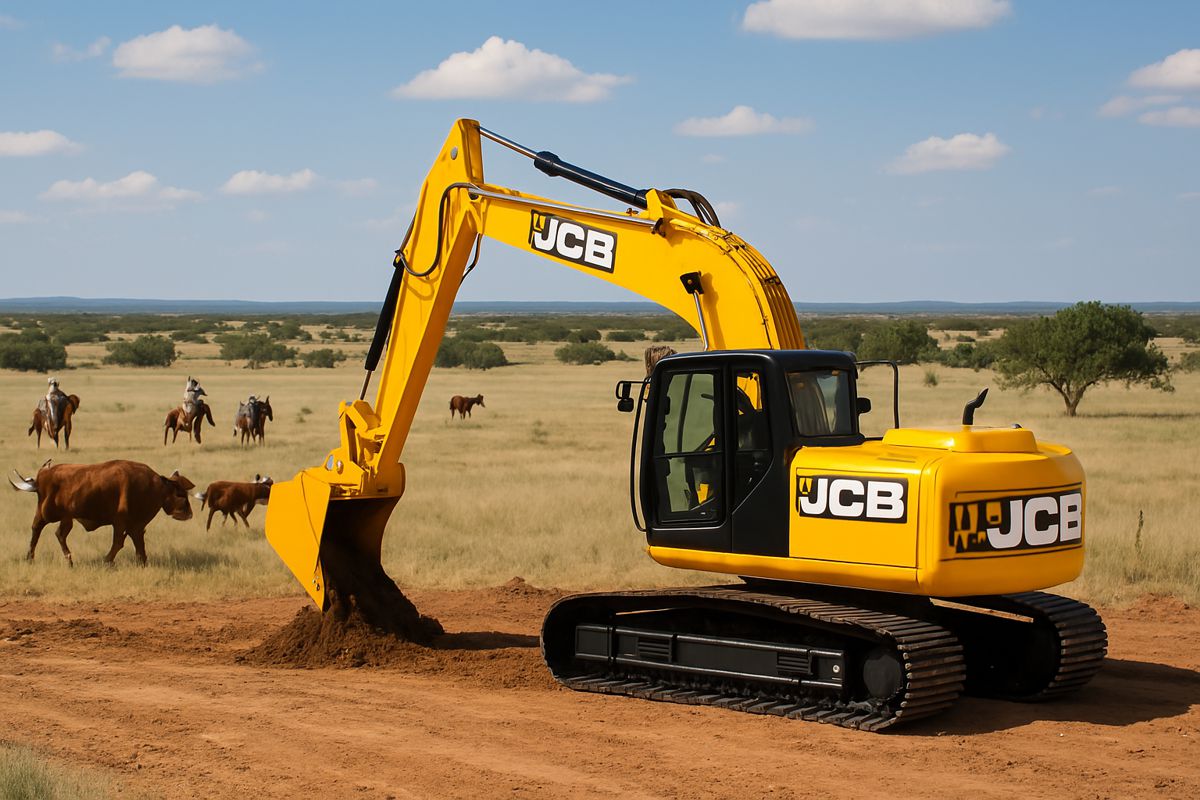JCB Accelerates US Growth with Expanded Texas Facility Amid Tariff Challenges
In a significant move highlighting its commitment to the US market, British construction equipment giant JCB has announced plans to dramatically expand its new factory in San Antonio, Texas. Originally set to cover 500,000 square feet, the facility will now double in size to one million square feet. This strategic expansion, confirmed amid concerns over recently imposed tariffs by the Trump administration, represents a clear signal that JCB is poised to intensify its North American operations.
The decision to enlarge the San Antonio site follows the recent implementation of US tariffs, a development that JCB acknowledges will create short-term challenges. However, the company views these tariffs as a catalyst rather than a setback. According to JCB CEO Graeme Macdonald, while the tariffs will initially present significant hurdles, the expanded plant will position JCB to better absorb these impacts in the medium to long term.
Macdonald remarked: “In the short term, the imposition of tariffs will have a significant impact on our business. However, in the medium term, our planned factory in San Antonio will help mitigate the impact. We are thankful that the tariff is only 10%, and we can only hope that the UK Government will conclude negotiations on a trade deal in the coming days and weeks.”
Texas Plant to Bolster US Manufacturing Presence
JCB’s expanded Texas plant represents a massive $500 million investment, reflecting the company’s long-term vision for growth in the American market. Once fully operational next year, the facility will employ up to 1,500 people, significantly boosting local employment and economic activity in San Antonio.
This move is part of JCB’s broader US strategy. The company, founded 80 years ago, first entered the US market in 1964 and has established deep roots, particularly through its well-known facility in Savannah, Georgia, which has been operational for 25 years and currently employs approximately 1,000 workers.
Anthony Bamford, Chairman of JCB, emphasised the company’s adaptability: “JCB has been in business for 80 years this year, and we are well accustomed to change. The United States is the largest market for construction equipment in the world, and President Trump has galvanised us into evaluating how we can make even more products in the USA, which has been an important market for JCB since we sold our first machine there in 1964.”
Tariff Impact on the Construction Equipment Industry
The announcement by JCB comes in the wake of tariffs imposed by the Trump administration, which primarily target imported steel and aluminium—key materials for heavy equipment manufacturing. These measures, aimed at bolstering US industry, have been controversial, raising costs for manufacturers who rely heavily on these imported materials.
Despite these economic pressures, JCB’s investment in San Antonio underscores a broader trend among international companies expanding domestic manufacturing capabilities in response to shifting trade policies. By increasing their US-based production, these companies aim to sidestep the worst effects of tariffs and maintain competitiveness within the lucrative North American market.
Wider Economic Implications for Texas
The decision to expand the San Antonio facility holds considerable implications for the regional economy in Texas, already a burgeoning hub for manufacturing and industry. The addition of 1,500 new jobs promises substantial economic benefits, ranging from increased local spending to broader enhancements in infrastructure and supply chain dynamics. Local officials have welcomed JCB’s expanded commitment, seeing it as a robust endorsement of Texas’s attractiveness as a manufacturing destination.
Additionally, JCB’s expansion could prompt other international and domestic manufacturers to follow suit, further reinforcing Texas’s status as a key player in the American industrial landscape. With its strategic location and well-established logistics networks, San Antonio presents an ideal environment for manufacturers looking to mitigate tariff impacts by increasing local production capabilities.
Long-Term Strategy in Response to Tariffs
By doubling the size of its planned San Antonio factory, JCB isn’t merely reacting to short-term tariff challenges—it’s proactively shaping its long-term strategic position in North America. This move exemplifies how forward-thinking businesses are responding to geopolitical shifts and economic uncertainties by localising their manufacturing bases, thereby reducing dependency on imports and mitigating risks associated with international trade volatility.
Industry experts suggest that JCB’s proactive approach could set a blueprint for other global companies grappling with similar challenges. Investing heavily in local production capabilities, particularly in critical markets like the US, may become the norm rather than the exception as businesses navigate an increasingly complex global economic landscape.
A Strong Commitment to the US Market
Ultimately, JCB’s decision to expand its San Antonio plant highlights its unwavering commitment to the US market. Despite the initial difficulties posed by tariffs, JCB’s long-term view recognises the value of deepening its American manufacturing presence. This expansion is not only a clear statement of intent but also positions JCB favourably against competitors who may be slower to adapt.
As the plant moves towards full operational status, the company’s enhanced capacity will not only secure its supply chain against future disruptions but also underscore its position as a leading manufacturer in North America. JCB’s ambitious move is set to deliver significant benefits—not just for the company but also for the communities and stakeholders invested in America’s manufacturing sector.





























